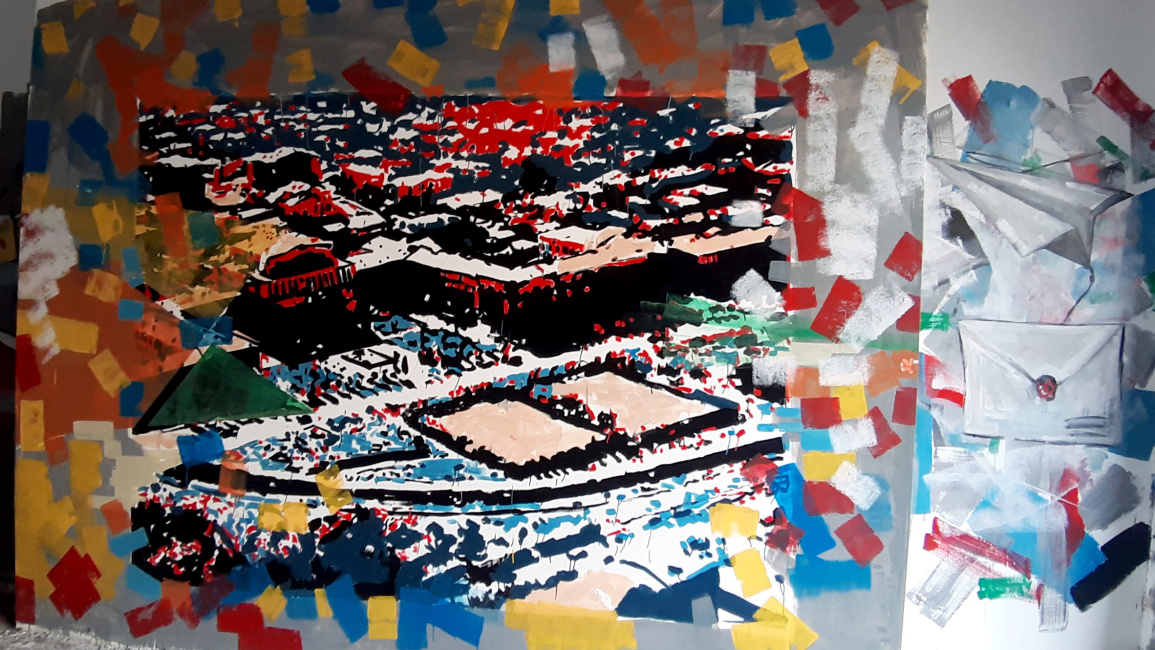- Main
- Node
- “Biochemistry and Biotechnology” Study Programme
September 13, 2022 | 16:53
“Biochemistry and Biotechnology” Study Programme

|
Name of the programme |
Biochemistry and Biotechnology |
|
Duration of studies |
4 years, 240 ECTS credits |
|
Awarded qualification |
Bachelor of Biology |
|
Language of studies |
Armenian |
|
Mode of study |
Full-time |
|
Tuition fee |
500 000 AMD per year |
Admission:
An applicant for the programme must have a certificate of secondary education, primary professional or secondary professional education. The admission is carried out according to the admission regulation approved by the RA government: http://www.ysu.amhttps://www.ysu.am/uploaded/entrant/2022/Karg-2022.pdf.
For admission, the applicant takes an exam in "Biology" as well as "Physics" or "Chemistry" – of their choice. 
Aim of the programme:
To prepare specialists majoring in the specialty of "Biochemistry and Biotechnology" with fundamental knowledge and skills in the fields of biochemistry and biotechnology as well as professional focus in the use and implementation of biological technologies in production.
Learning outcomes of the programme:
After the successful completion of the programme student will be able to:
Professional knowledge and expertise:
- Present the morphological, metabolic, genetic, ecological, taxonomic and identification features of living organisms at the molecular, cellular, tissue and organ structural levels.
- Explain the role of enzymes, vitamins and hormones in metabolic processes, metabolic regulation mechanisms and interconnection.
- Present the basic biochemical and bioenergetic processes in microbes, the structural features of biomembranes and the processes of material transport through them.
- Describe the main biotechnological processes.
Professional practical skills:
- Apply optical, chemical, biochemical, analytical, genetic, molecular, microbiological and computer software methods in biotechnological, manufacturing, biomedical and other fields.
- Apply modern equipment, navigate in the selection of modern directions and methods of biotechnology, coordinate and control laboratory and research processes.
- Identify and solve professional problems arising in biotechnological, manufacturing, biomedical and other fields.
General (transferable) skills:
- Design ways of conservation and rational use of nature, explain the mechanisms of biological effect of mutagen factors, observe the norms of professional ethics.
- Conduct experimental work, apply new methods in the field of professional activity.
- Prepare reports and conduct professional debates.
The curriculum:
The program syllabus is available at the following link.
Future career opportunities for graduates:
Graduates of the programme can be employed in organizations and enterprises operating in biology and related fields, occupying the following positions:
- Biotechnological laboratories and productions – specialist-biotechnologist.
- Production enterprises in the field of food – specialst in microbiology and inspection laboratories.
- Pharmaceutical and cosmetic productions - specialist, employee of biochemical and microbiological laboratories.
- Sanitary-epidemiological services, biological (food) safety services - employee of microbiological and biochemical laboratories.

- Healthcare medical laboratories, medical organizations – specialist-biochemist or specialist-microbiologist.
- Environmental organizations and monitoring services – specialist.
- Agrarian organizations - employee of information and consulting services.
- Scientific organizations and scientific research institutes - employee of research and support staff.
- Professional educational institutions: in secondary professional education institutions - teacher (with pedagogical qualification), teaching assistant (laboratory assistant).
Learning support resources and forms:
The programme is implemented by the Chair of Biochemistry, Microbiology and Biotechnology in collaboration with newly established Microbial Biotechnology and Biofuels Innovation Center, enhanced with state-of-the-art equipment, chemical reagents and accessories, as well as modern computer technology. The main teaching staff of the chair was trained in the leading universities of the USA, Germany, France, Spain, Norway, Bulgaria and Russia.
Find more about the details of the center by following the links:
 The rich literature of the YSU library, including educational methodological manuals published in recent years, as well as 2 international exchange study programmes, cooperating with the universities of Germany and Norway and operating in the chair, research groups with state thematic funding and scientific programmes, which include students as well, funded by foreign grants, provide for the education of students.
The rich literature of the YSU library, including educational methodological manuals published in recent years, as well as 2 international exchange study programmes, cooperating with the universities of Germany and Norway and operating in the chair, research groups with state thematic funding and scientific programmes, which include students as well, funded by foreign grants, provide for the education of students.
Alumni feedback about the program

